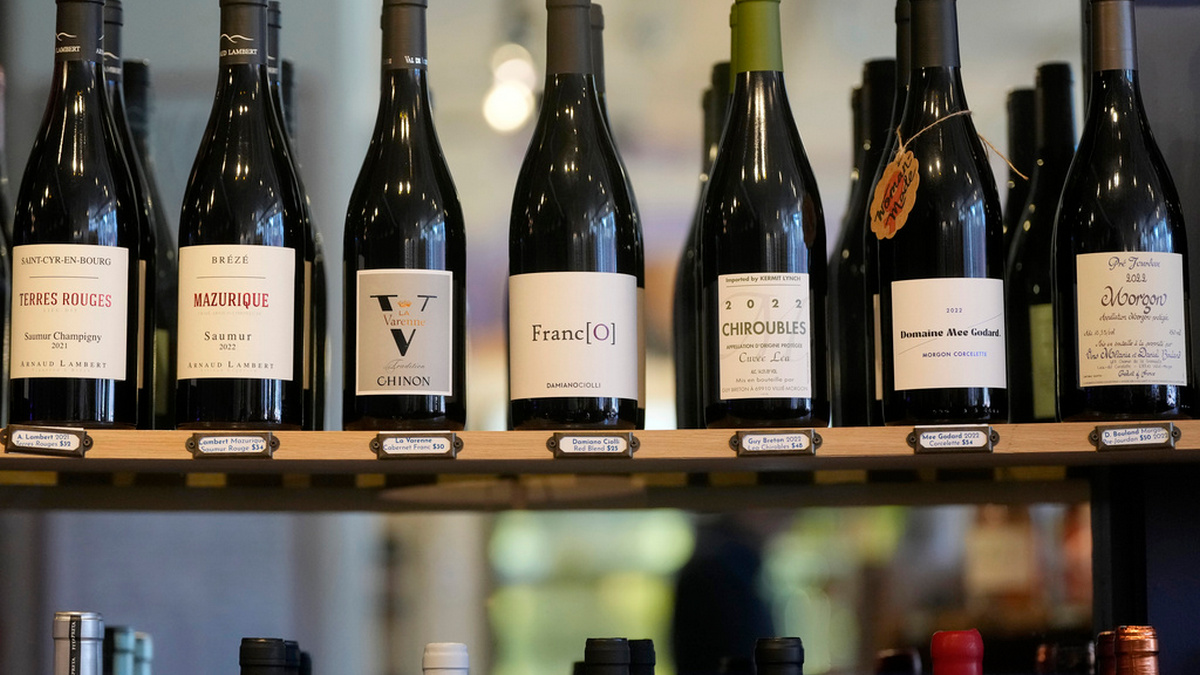US President Donald Trump last week threatened to impose a 200 per cent tariff on European wines and champagnes.
Those in the industry in Europe particularly those in smaller wineries say it could be an absolutely disaster.
Trump and Europe are locked in a spat over tariffs.
Trump made his threat to Europe’s alcohol industry after the European Union announced a 50 per cent tax on American whiskey,
That move came after Trump imposed tariffs on foreign steel and aluminum.
Among those who are worried about their livelihood is David Levasseur.
Levasseur is a third-generation wine grower and owner of a Champagne house in France’s eponymous region.
“It means I’m in trouble, big trouble. We hope it’s just, as we say, blah blah,” Levasseur said, standing in his Champagne house as he swilled a flute of his vineyard’s bubbly. “When someone speaks so loudly,” he said of Trump’s 200% threat, “it’s about the media buzz. But in any case, we think there will be consequences.”
Like other wine sellers and exporters, Levasseur said that a 200% tariff on what he exports to the US would essentially grind to a halt his business in that country.
“It could be a real disaster,” Levasseur said.
Italy, France and Spain are among the top five exporters of wine to the United States.
‘Hammer blow’
Gabriel Picard, who heads the French Federation of Exporters of Wines and Spirits, said 200 per cent tariffs would be “a hammer blow” for France’s industry, whose wine and spirits exports to the US are worth $4.3 billion annually.
“With 200 per cent duties, there is no more market,” Picard said.
Still, he understood why European leaders responded to Trump’s initial tariffs.
“There’s no debate about that. We agree that Mr Trump creates and likes to create contests of strength. We have to adapt to that,” he said.
For Italy, it’s the wine at high-end restaurants they worry most about losing
In Italy, the wine industry has called for calm, hoping that negotiators in Brussels and Washington can back down from the growing trade spat.
The US is Italy’s largest wine market, with sales having tripled in value over the past 20 years. Last year, exports grew by nearly 7 per cent to $2.2 billion according to Italy’s main farming lobby Coldiretti.
Strong sales at high-end restaurants, in particular, make the US market difficult to replace, said Piero Mastroberardino, vice president of the national winemakers’ association Federvini.
Mastroberardino’s “Taurasi Radici” red wine, for example, was rated the fifth-best wine in the world in 2023 by Wine Spectator, an American wine and lifestyle magazine.
It sells for around $80 a bottle retail in the US, roughly twice how much it costs in Italy, so any tariffs would push it to an “unthinkable price point,” he said.
In January, Mastroberardino’s US import partners increased orders by about 20 per cent in January anticipating possible Trump tariffs. But the increase in orders would not offset the impact of tariffs, particularly that high, he said, for long.
“It is in everyone’s interest to maintain a united front at the negotiating table,” Mastroberardino said, “especially those who are being targeted.”
Wine producers and industry experts in Spain, whose smooth reds are savored by tens of millions of American tourists who visit the southern European country every year, shared similar concerns about prospective tariffs.
“We don’t think they have much logic and we hope it never comes to fruition,” said Begoña Olavarría, an economic analyst at the Interprofessional Wine Organisation of Spain.
Spain was the fourth-largest exporter of wine to the US last year in sales, and the seventh-largest by volume, according to the trade group.
Spanish wine exports to the US grew by 7 per cent last year. And the wine industry represents about two per cent of the country’s overall economic output, the trade group said.
‘Pretty desperate’
For Spain’s producers of Cava, the threat of US tariffs hit especially hard.
The US is the number two market for the Spanish bubbly wine, which like Champagne has a designation of origin meaning it can only be made in Spain.
Mireia Pujol-Busquets is owner of the Alta Alella Bodega located in Cava country just south of Barcelona. Founded by her family in 1991, she said her business and its 40 employees immediately risk losing sales of some 25,000 bottles if the American market slams shut.
“We spent 10 years of effort opening the American market, finding distributors and building a brand,” she told the AP.
While the Catalan bodega and its distributors in the US were able to absorb the price increase induced by Trump’s 25 per cent tariff on wines during his first term, Pujol-Busquets said that it is “completely irrational” to consider eating a 200 per cent hike.
“The situation is pretty desperate,” she said.


)

)
)
)
)
)
)
)
)



